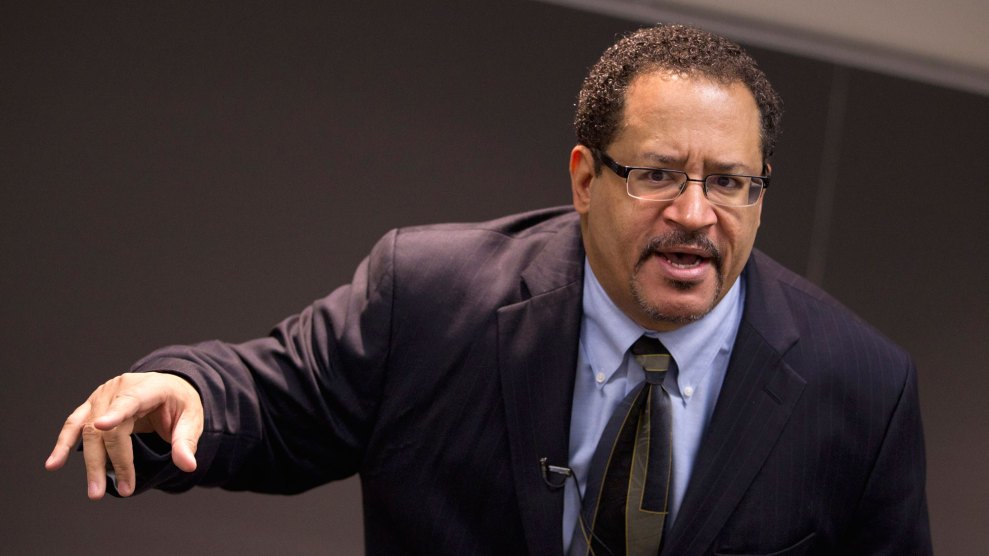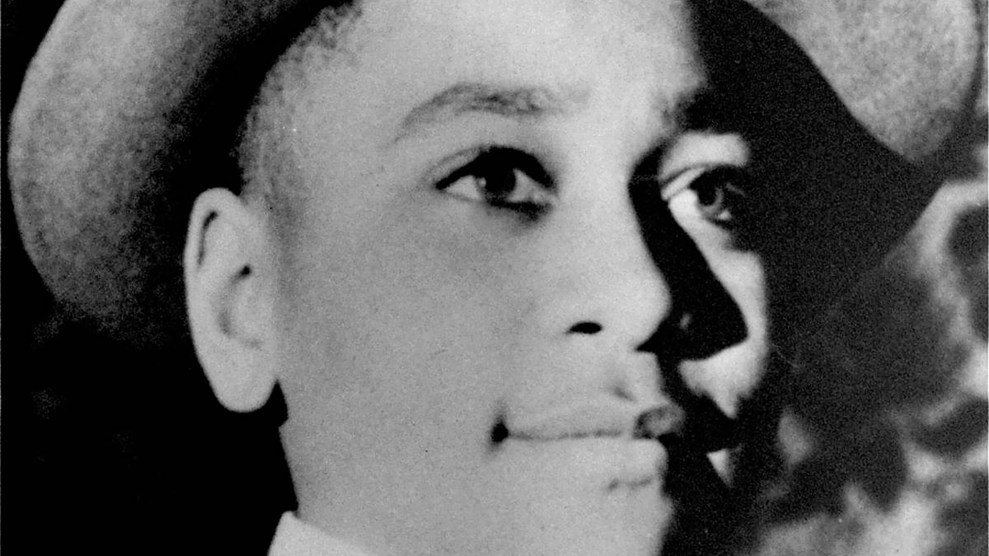
Nancy Kaszerman/ Zuma Wire
We asked a range of authors, artists, and poets to suggest the books that bring them solace or understanding in this age of political rancor. Two dozen or so responded. Here’s what the author and Georgetown University sociologist Michael Eric Dyson had to offer.
Latest book: Tears We Cannot Stop
Also known for: The Black Presidency
Recommended Reading: There are two books in particular that I look to for analysis and inspiration in these tough times. First, Richard Hofstadter’s The Paranoid Style in American Politics offers bracing commentary and vibrant analysis of the fringe political movements that have defined our nation in times of crisis, paying attention to the paranoia and conspiracy that fuel reactionary outlooks. That clearly helps us to put this Trumpian epoch in illuminating context.
I also turn time and again to Howard Thurman’s book of sermons, The Growing Edge, to offer solace and sanctuary from the presentist sensibilities that too often deprive us of the long view of history. Thurman reminds us that enslaved blacks insisted, “We cannot be prisoners” of current happenings. “We must not scale down the horizon of our hopes and our dreams and our yearnings to the level of the event of our lives.” That’s good advice for those tempted to surrender to the contemporary moment without looking at the larger, longer picture.
______________
The complete series: Daniel Alarcón, Kwame Alexander, Margaret Atwood, W. Kamau Bell, Ana Castillo, Jeff Chang, T Cooper, Michael Eric Dyson, Dave Eggers, Reza Farazmand, William Gibson, Mohsin Hamid, Piper Kerman, Phil Klay, Alex Kotlowitz, Bill McKibben, Rabbi Jack Moline, Siddhartha Mukherjee, Peggy Orenstein, Wendy C. Ortiz, Darryl Pinckney, Joe Romm, Karen Russell, George Saunders, Tracy K. Smith, Ayelet Waldman, Jesmyn Ward, and Gene Luen Yang.

















